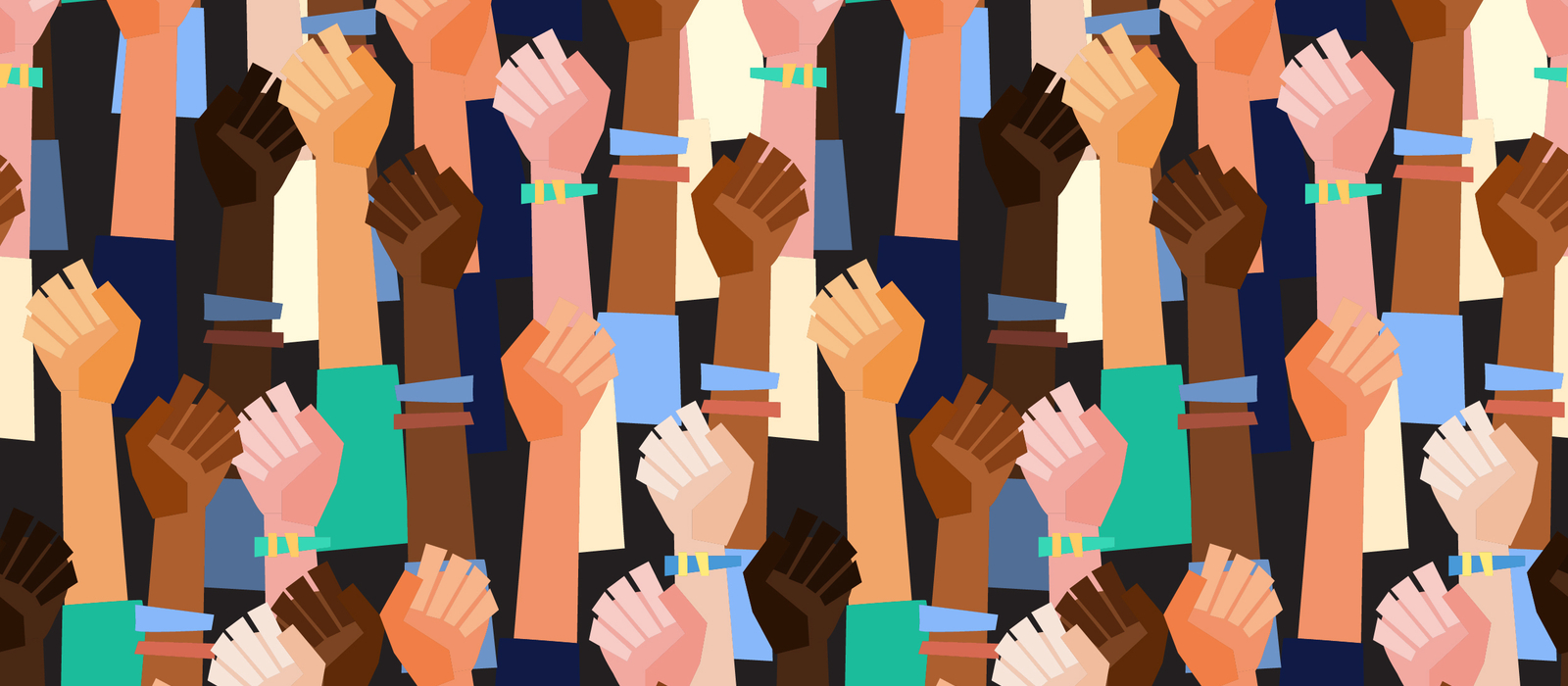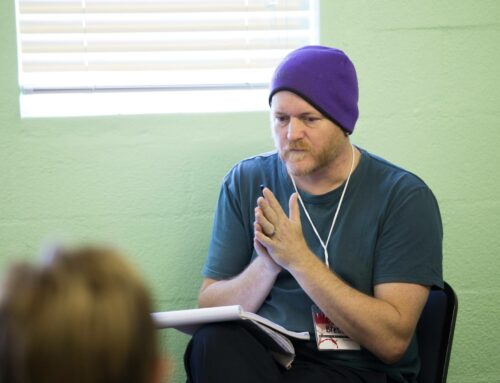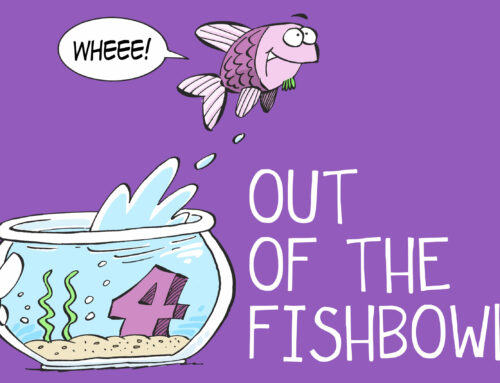The internet can be a confusing and scary place to try and figure out race vibes [or parenting/immigration/religion/sexuality and so on…]
– if you’re brave then check out ‘Ozzy Man reviews Arguing on the Internet’ because it is harsh but funny and sadly not too far from the truth.
Trying to figure out race vibes offline can also be counterproductive if the people around you are more echo chamber than collaborative sounding board, which probably tends to be the case as we don’t all suddenly have an awakening moment [or moments] all at the same time unfortunately.
So what does a well-intentioned person do to try and educate themselves more about race and privilege and prejudice and other important topics like those?
The Both and the And
Well, once again, i really do think the best way to go about this journey [and it is a journey, which i expect i will be busy with for the rest of my life so sad face to you if you thought it was simple a handy list of Ten ‘How to’ moments and suddenly you would have arrived, because i don’t think this is that!] is by embracing a commitment to be in a space of regular ongoing learning, both actively and passively, in the spaces you find yourself in.
Online spaces and opportunities
Social media really can be one of those ‘Best of times and worst of times’ spaces and so the sooner we realise it’s a tool and not good or bad in itself, the quicker we will be able to work out how to use the tool most effectively.
Some ideas that i have found which have worked for me:
- Follow the right people – if you read something that is helpful in terms of race, note the author and follow them on the Twitterer or Facebook or subscribe to their blog or podcast so that you can be encouraged/challenged/educated by more of their stuff. Chances are, if someone has helped you once, they will more than likely do it again. There are some people who i learn so much from just by reading their Facebook statuses [Ashley Visagie comes to mind] while others are helpful for the articles they post or link to [Jacqui Tooke] and others because of their blogs [Austin Channing Brown] and others because of podcasts or books they have written [Robin DiAngelo].
- Read/listen to people who don’t look like you – i wrote about this recently over here and it is an extension of the above point. But if you are someone who reads then be intentional about reading people who are different – in gender, in age, in culture, in country and even in religion or belief. This is a really great way to learn from those who have experienced life differently to you and will help you see things that are often in your blind spots. You don’t have to agree with everything you read, but it does help to invite the different perspectives and to at least consider life from a different point of view.
- Unfollow the wrong people – this is a bit of a trickier one because there is always a danger of creating an echo chamber where everyone says the things you already think and you will seldom learn in that space. But there are people on social media who can be a distraction and if there are some people in your timelines who are constantly promoting values that are not yours, or getting it completely horribly wrong on race or whatever it is you are trying to learn about, then sometimes by quieting their voice [in terms of your space] you make space for more of the voices you can learn from. Sometimes for a season, but sometimes for good, there are some voices that are just not helpful.
- On Facebook join groups with a specific focus – ‘That Dialogue Thing’ is an example of a group on Facebook where i have learnt a lot from a number of very different people, most of whom i don’t know beyond that group. When you post something in general Facebook then all sorts of distractions and misdirections are possible and the hate and misunderstanding and trolling tends to flow quite freely because anyone can find and comment on your stuff. But in a group that has specifically been designed with a focus in mind and which has a set of guidelines to help preserve conversation and engagement can help you go more deeply more quickly. i have found benefit in race groups with a specifically Christian focus [because that is a key lens i view the world through] and also huge benefit from groups with no faith focus [these have helped me gain a more general understanding of principles and thought that affects everyone]. So find yourself a group or groups or create your own with some people who are dedicated to learn together and be a little bit protected from those who are not interested in the conversation or even any kind of change right now.
Offline Spaces and Opportunities
- Take your online conversations offline – i have made some incredible friends who started out as social media mates and then we took the risk and met for a coffee or a meal [or in extreme cases a dinner and sleepover]. If you have connected with someone online for a while and they are living near you or you find out that they are about to visit your province [looking at you, Nobuntu!] then take the chance and meet in a crowded space for coffee and who knows what amazing real-life offline friendships might develop. Some friendships will only ever be online and i have some significant ones of those and don’t take them lightly at all, but at the same time to get to meet face-to-face and have a more instant back-and-forth connection, well i have really enjoyed so many of those. Some of them can be a little weird and that’s okay too. We can always agree to take things back online and pretend it never happened…
- Invite people to dinner – this is huge. And if you’re complaining that you don’t have any friends who don’t look like you and would like some, then invite them for a meal. Or respond to an invitation. But it has to start somewhere and so why not with something that most people really have some affinity for – food, and maybe drink. But also try and keep things balanced here cos what often happens is you will have a dinner party with a bunch of white people and one black, coloured or indian person, or couple and that will not necessarily be the most comfortable space for them. So if you’re going to make an effort, then try and keep some balance. But also, when you are getting to know new people i would encourage you to rather have three dinners with eight people than a braai with twenty because with less people you can actually start getting to know people better. Alternatively this works with board game evenings if you are board game people. Or book club or series night or Survivor or whatever. Start being more intentional in terms of who you invite.
- Be intentional about the spaces you choose to be in – if you’re at an all-white gym, church, restaurant, supermarket, mall, neighbourhood etc start noticing that and start choosing differently. Drive an extra ten minutes to be in a space that is more diverse and start engaging more deeply with people who don’t look like you.
Much work to be done
This morning i read an article titled, ‘Repairing the Damage of White Privilege’by a man named John Dorhauer which i found very helpful. Two passages in particular jumped out at me:
[1] Malcolm X wrote: “If you stick a knife nine inches into my back and pull it out three inches, that is not progress. Even if you pull it all the way out, that is not progress. Progress is healing the wound, and America hasn’t even begun to pull out the knife.”
Creating a new level playing field would be the equivalent of pulling out the knife.
That does not heal the wound. That does not repair the damage. [John Dorhauer]
This is related to America, but our stories overlap enough for it to be so much true for South Africa as well. Think back to 1994 and when the laws in the country changed, how much did the spirit change? Or the geography? Or the economics? Or the active relationships between people? Can any of these questions be answered by how few white people have ever ventured into an area like the Cape Flats or a township [for a reason other than taking a look]
i found reading this article was so helpful for me simply by offering me the question, ‘How do we repair the damage?’ Because twenty-five years later there is still so much damage we can see that relates to the overflow of apartheid in our country’s life… and we because this isn’t the white saviour thing of ‘How do I swoop in and fix everything?’ but i also don’t think it’s the white distance thing of ‘Sort yourselves out and we will be over here’ but quite likely some form of relational togetherness that seeks to work together to hopefully see a new outcomes…
[2] At best, white awareness leads to white accompaniment, an alliance that commits to awareness, sacrifice, and justice as envisioned by those most damaged by white oppression through the time of the colonizing empires. The hope here is that white people who are hyper-aware of privilege will remove themselves as the last and most pernicious impediment to race equity. [John Dorhauer]
This second point speaks to some more of that. How do we remove ourselves as an impediment to race equity? Which speaks more than just distancing ourselves from the problems i believe but also speaks to us not holding tightly on to the lead in this thing going forwards.
This is a series that was compiled a year or so ago that shared some more ideas of how we [as white people] can go about educating ourselves and doing some more of the work that needs to be done:
Finally, a few books that i have found helpful in terms of my own education have been and links to my blog posts on them:
Between the World and Me – Ta-Nehisi Coates
White Fragility – Robin DiAngelo
Black Dignity in a world made for whiteness – Austin Channing Brown
How can man die better? The Robert Sobukwe story – Benjamin Pogrund







Leave a Reply